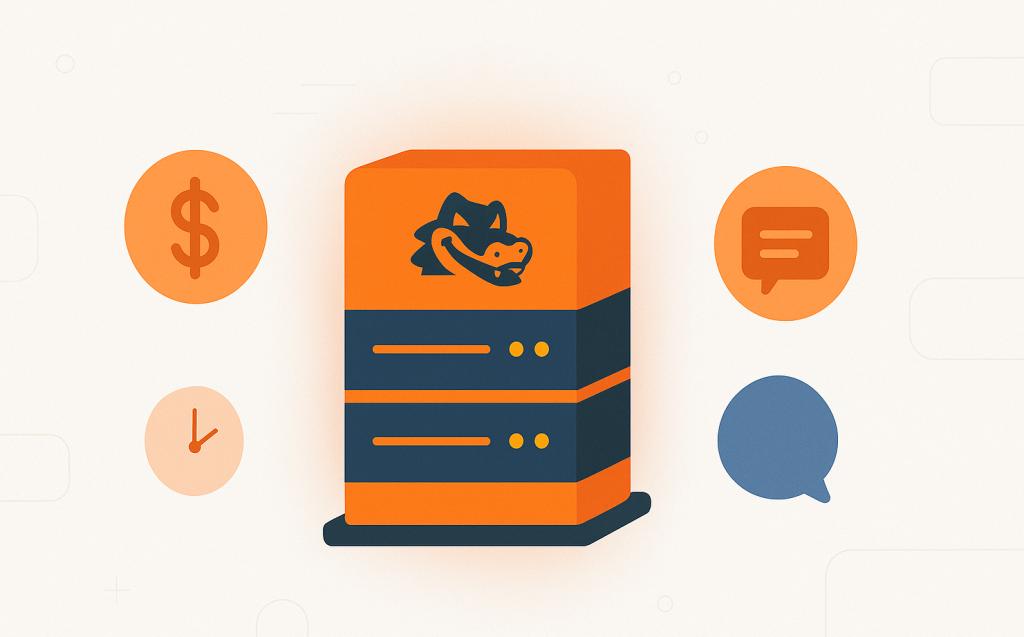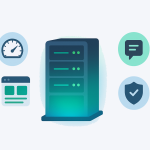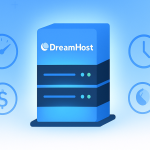The world of web hosting is filled with niche providers, performance specialists, and budget contenders, but few brands possess the instant name recognition of HostGator. With its friendly alligator mascot and aggressive marketing campaigns, HostGator has been a fixture in the industry for nearly two decades, helping millions of beginners and small businesses get online.
HostGator’s core appeal lies in its simplicity, its beginner-friendly ecosystem, and its competitive introductory pricing. It aims to be the accessible, no-fuss option for those taking their first steps on the web. However, in an industry where speed is constantly increasing and new server technologies are emerging, the crucial question for 2025 is: Does HostGator deliver reliable, modern performance, or is it primarily coasting on brand recognition and beginner affordability?
This review offers an honest, in-depth analysis of HostGator’s current offerings, comparing its performance to speed-focused competitors like Hostinger and the premium service offered by SiteGround. We’ll detail the actual performance metrics, dissect the famous “unlimited” claims, and provide a clear verdict on whether this industry veteran is the right foundation for your project.
Part 1: Pricing and Affordability: The Introductory Lure
HostGator follows the standard industry practice of using deeply discounted long-term contracts to attract new customers. The primary advantage here is that they make getting started incredibly cheap.
The Initial Price Structure
HostGator’s plans are structured to encourage users to commit to the longest possible term, typically 36 months, to lock in the lowest advertised rate.
| Plan Tier | Introductory Price (36-Month) | Key Features |
|---|---|---|
| Hatchling Plan | $2.75/mo | 1 Website, Free Domain (1 year), Unmetered Bandwidth. |
| Baby Plan | $3.50/mo | Unlimited Websites, Free Domain (1 year), Unmetered Bandwidth. |
| Business Plan | $5.25/mo | Unlimited Websites, Free Dedicated IP, Free SEO Tools, Unmetered Bandwidth. |
The Baby Plan is overwhelmingly the most popular choice because the minimal difference in price between the Hatchling and Baby plan grants the ability to host unlimited websites. This “unlimited” feature is the biggest attraction for users who plan to run multiple small blogs or side projects.
The “Unlimited” Caveat
While HostGator advertises “unlimited” storage and bandwidth (data transfer), this is a common term in shared hosting that requires clarification:
- It means: You won’t be charged extra based on the amount of data transferred (bandwidth) or the total number of files.
- It does NOT mean: You can host terabytes of data or run resource-intensive file-sharing services. Shared hosting is still subject to an Acceptable Use Policy (AUP). If your site consumes disproportionate amounts of CPU, RAM, or I/O operations (Input/Output, related to database queries and file access), you will be asked to upgrade to a higher tier like a VPS or Dedicated plan.
For 99% of personal blogs and small business sites, this “unlimited” bandwidth is effectively true.
The Renewal Price Jump: The Key Friction Point
Like Bluehost, its corporate sibling, HostGator implements a substantial price increase when the initial contract term expires. This is the single largest complaint from long-term customers and is necessary to understand before committing.
- A Hatchling Plan starting at $2.75/mo can renew at approximately $11.95/mo.
- A Baby Plan starting at $3.50/mo can renew at approximately $12.95/mo.
Budgetary Takeaway: HostGator is exceptionally cheap for the first 36 months, providing a long runway for new sites to establish themselves and start generating revenue. However, if your long-term budget is tight, ensure you plan for the renewal cost, which can be over three times the introductory rate.
Part 2: Performance and Reliability: A Mixed Report
In terms of raw speed, HostGator is not trying to compete with the latest LiteSpeed-powered hosts or premium cloud solutions. Its performance profile is best described as reliable but average.
Uptime Guarantee: Solid and Stable
HostGator offers a standard 99.9% uptime guarantee and often performs slightly better. Independent monitoring typically places its real-world uptime around 99.95%.
- Practical Impact: This level of uptime is solid for shared hosting. Your site will remain consistently available, which is the most critical element of reliability. If HostGator fails to meet the 99.9% guarantee in a given month, they offer a month of credit on your account, which is a good sign of accountability.
Speed: Functional, But Not Fast
The area where HostGator shows its age compared to newer, optimized hosts is speed.
- Average Load Times: HostGator’s average load times generally fall in the 1.1s to 1.5s range for a standard WordPress site.
- The Technology Gap: HostGator servers are reliable but lack the advanced architecture of its competitors. It doesn’t use Google Cloud like SiteGround, nor does it typically use the high-performance LiteSpeed servers like Hostinger. Instead, it relies on more traditional server stacks and basic caching.
- The Need for Plugins: To get a decent speed score (under 1s), users on HostGator will need to rely heavily on third-party WordPress optimization and caching plugins (like WP Rocket or W3 Total Cache) and manually configure them. This adds complexity that speed-focused hosts already handle at the server level.
Performance Verdict: HostGator is a workhorse—it’s incredibly reliable in keeping your site online, but it requires more effort from the user to make that site truly fast. For projects where speed isn’t the absolute top priority (like personal portfolios or simple informational sites), this performance is adequate.
Part 3: Ease of Use and Platform Familiarity
HostGator targets beginners, and its platform reflects that focus on accessibility and familiarity.
The cPanel Interface
Unlike SiteGround and Hostinger, which have developed their own proprietary dashboards (Site Tools and hPanel, respectively), HostGator sticks with the classic, industry-standard cPanel.
- Pro-Beginner: While cPanel can look dated, its layout is familiar to nearly anyone who has used web hosting before. All essential functions—database management (phpMyAdmin), file management, email setup, and one-click installers—are clearly organized.
- One-Click Installation: Installing WordPress, Joomla, or other CMS platforms is straightforward using the included tools.
- Gator Website Builder: For absolute beginners who don’t want to touch WordPress, HostGator includes its own drag-and-drop website builder. This tool offers a highly simplified, non-technical path to creating a basic, modern-looking site.
The Support Experience: Availability vs. Quality
HostGator shines in terms of support availability, offering 24/7 help via phone, live chat, and a ticket system.
- The Good: For common issues (billing, password resets, simple domain configuration), the support is fast and effective. The availability of phone support is a major advantage over Hostinger, providing peace of mind during site emergencies.
- The Mixed: The quality of technical support can be inconsistent. Because HostGator is a massive volume host, the first line of defense (Tier 1 agents) often relies on standardized scripts and may take longer to solve complex, nuanced issues that require escalation to a higher tier. This can lead to frustration and extended resolution times for difficult server or database problems.
Part 4: The Feature Set: What You Get and What You Pay For
HostGator includes some strong features with its plans, but it strategically prices key security and performance features as add-ons.
Included Perks
- Free Domain: Included for the first year on most plans.
- Free SSL Certificate: Standard security is included via Let’s Encrypt.
- Unmetered Resources: As clarified above, this is a strong benefit for standard use.
- Ads Credits: HostGator typically bundles $100 in Google Ads and $100 in Bing Ads credits, which is excellent value for businesses just starting their online marketing efforts.
The Paid Add-Ons (The Upsell)
HostGator is notorious for its aggressive upsells during the checkout process, particularly for security and backup features that competitors often include for free.
- Daily Backups: Unlike SiteGround, HostGator does not include free, reliable, automated daily backups. You are heavily encouraged to purchase the CodeGuard add-on, which is essential for business continuity and protecting your data from accidents or malware.
- Advanced Security: While basic firewalls are active, the most robust malware scanning and removal services often require the purchase of SiteLock Security.
Feature Assessment: The cost of the core hosting plan is low, but be prepared to either spend money on these critical add-ons (CodeGuard and SiteLock) or commit to manually managing your own backups and security, which is a major time sink for small business owners.
Final Verdict: Is HostGator a Smart Choice in 2025?
HostGator is an excellent starting point for the absolute beginner, but it is not a host for long-term, high-growth, or performance-critical projects.
It is a proven, reliable choice that provides a safe and easy entry into the world of web hosting. The combination of phone support, the familiar cPanel interface, and the exceptionally low 3-year introductory price makes it one of the best “training wheel” hosts available.
Who Should Choose HostGator?
- New Bloggers and Hobbyists: If you are launching your first site and need maximum affordability for the longest term possible.
- Users of Multiple Small Sites: The Baby Plan provides the best value for hosting several small, low-traffic sites under one account.
- Users Who Need Phone Support: HostGator’s 24/7 phone line is a genuine advantage over chat-only competitors like Hostinger.
Who Should Look Elsewhere?
- Performance-Driven E-commerce Sites: The slower average load times will hurt conversions and Google Core Web Vitals scores.
- Developers and Agencies: You will quickly find the performance limits restrictive, and the lack of advanced developer features (like staging or native Git) will slow down your workflow.
- Budget-Minded Users Long-Term: If you cannot afford the significant renewal price jump, you will be forced to migrate after your initial contract ends.
The Bottom Line: HostGator is a safe, stable, and budget-friendly launchpad. Just be aware that once your website matures and speed becomes a factor, you will likely need to upgrade to a provider that offers more modern server architecture (like SiteGround or a high-end VPS solution).



